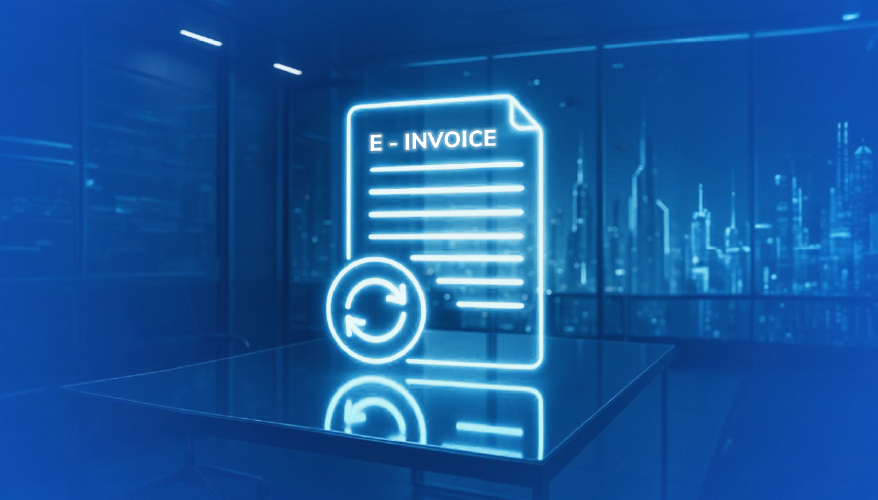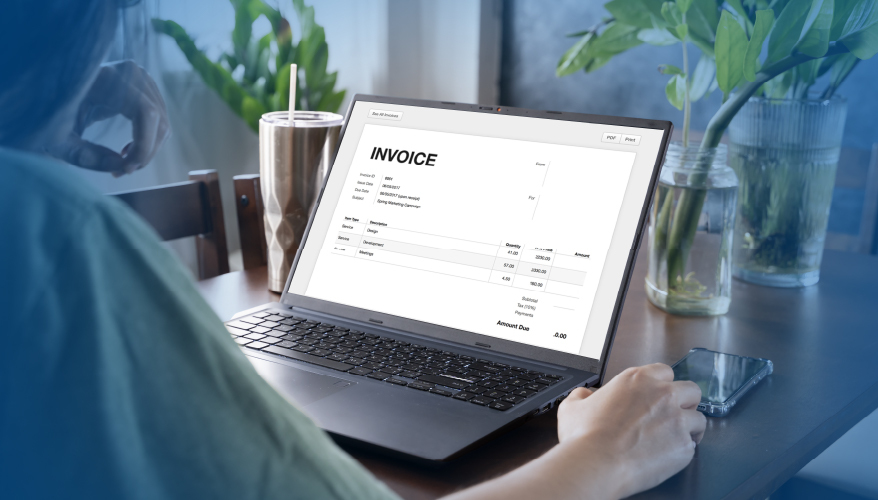
Why IRIS MyeInvois a better choice for SMEs | E-Invoicing Solution in Malaysia
November 24, 2025Key Changes in the e-Invoice in Malaysia Guidelines 2025

As Malaysia accelerates the rollout of its national e-Invoicing in Malaysia initiative, staying updated with the latest regulatory guidelines is critical for businesses. There have been several key changes in the e-Invoicing in Malaysia guidelines from January to June 2025. On 5 June 2025, the Inland Revenue Board of Malaysia (LHDNM) released e-Invoice guideline Version 4.4, marking a significant update to how e-Invoicing will be implemented across the country.
All these new changes reflect Malaysia’s growing commitment to digital tax administration and introduces crucial steps for businesses integrating with the MyInvois system, whether through the API or the portal.
Here’s a closer look at the major e-Invoicing changes introduced in 2025 and what they mean for your business.
Highlights of Malaysia’s E-Invoice Guidelines
1. Transaction-Level E-Invoicing Mandatory for Power & Telecom from Jan 2026
Starting from 1 January 2026, electricity service providers (for distribution, supply, or sale of electricity) and telecommunication service providers (for postpaid plans, internet subscriptions, and sale of electronic devices) will be required to issue an e-Invoice for each transaction, as consolidated e-Invoices will not be permitted. Businesses in these sectors must therefore upgrade their systems to enable transaction-level e-Invoicing and ensure full readiness before the effective date, since monthly or bulk billing consolidation will no longer be allowed.
2. Mandatory Per-Transaction Invoicing for High-Value Sales
According to the Specific E-Invoicing in Malaysia Guideline Version 4.2, starting 1 January 2026, any transaction exceeding RM10,000 must be accompanied by an individual e-Invoice. This rule applies across all industries. Consolidated e-Invoices for such high-value transactions will no longer be allowed. This move is aimed at improving traceability and enhancing tax compliance for significant business dealings.
3. Clarified e-Invoicing Timelines for New Businesses
E-Invoicing in Malaysia Guidelines Version 4.4 provides clearer timelines for businesses established in different periods:
1. For businesses started between 2023 and 2025 with a turnover of RM500,000 or more:
- Must implement e-Invoicing by 1 July 2026.
2. For businesses starting from 2026 onwards:
- If turnover is ≥ RM500,000: Implementation is required by 1 July 2026 or upon crossing the threshold, whichever is later.
- If turnover is < RM500,000: e-Invoicing must be implemented starting 1 January of the second year after surpassing the RM500,000 threshold.
4. Revised Implementation Relief Based on Turnover
To provide breathing room for smaller businesses, IRBM announced revised deadlines on 5 June 2025:
- Turnover RM 5M – RM 25M: Deadline remains 1 July 2025.
- Turnover RM 1M – RM 5M: Extended to 1 January 2026.
- Turnover ≤ RM 1M: Extended to 1 July 2026.
In addition to the updated timelines, all taxpayers will receive an additional 6-month grace period post their respective implementation date, offering more time to ensure readiness.
Early Access and Readiness Through IRIS MyeInvois Portal
The IRIS MyeInvois Portal is open to all businesses, irrespective of their implementation schedule. This provides an excellent opportunity for early familiarization. Businesses are encouraged to:- Explore the system in advance
- Test integrations
- Validate their operational workflows
5. Sandbox Environment Enhancements
As of 28 April 2025, IRBM updated the sandbox environment for e-Invoicing integration testing:
- Data Retention: Data in the sandbox will only be retained for 3 months, after which it will be permanently deleted. Businesses must ensure they back up essential data regularly.
- Rate Limiting: The sandbox has lower API rate limits compared to production, as it’s designed for functional testing. Businesses should plan their test cases accordingly.
These updates emphasize efficient use of the sandbox while encouraging better integration and preparedness.
6. Extended Deadline for Self-Billed e-Invoices on Imports
Malaysia’s E-Invoice Guideline Version 4.1 introduced a more flexible timeline for issuing self-billed e-Invoices related to imports:
- Previously: Deadline was the end of the following month after customs clearance.
- Now: Deadline extended to the end of the second month post-clearance.
Example:
Customs Clearance Date: 10 Jan 2024
Old Deadline: 29 Feb 2024
New Deadline: 31 Mar 2024
This change allows businesses more time to reconcile documentation and issue accurate self-billed e-Invoices, reducing risks of errors or penalties.
7. Flexibility During System Downtime – Guideline Version 4.3
Malaysia’s E-Invoice Guidelines Version 4.3, released in March 2025, introduces a crucial provision for system disruptions:
- If the MyInvois system is down due to technical issues or maintenance, taxpayers who provide evidence of compliance efforts will have their cases reviewed individually by the Director General of Inland Revenue.
- If justifications are deemed valid, no penalties will be imposed for missed validations during the disruption.
This update offers businesses greater peace of mind and clarity during unforeseen downtime.
8. SDK and API Enhancements
In February 2025, IRBM introduced several enhancements to the software development kit (SDK) and APIs:
- 7 February:
➤ Added General TIN (EI00000000010) to sample XML/JSON files.
➤ Multi-line item samples updated with varying tax types and exemptions. - 16 January:
➤ Renewal of the SSL certificate for myinvois.hasil.gov.my. - 14 January:
➤ Rate limits added for all major APIs including document submission, cancellation, rejection, retrieval, and search.
➤ New rate limits will be enforced from 30 May 2025.
These updates support better performance, security, and predictability for systems integrating with MyInvois.
9. New TIN Search API for Easier e-Invoice Issuance
Recognizing the difficulty some businesses face in obtaining Tax Identification Numbers (TINs) from third parties, LHDN has launched a dedicated API to simplify the process.
This tool improves e-Invoice accuracy and reduces delays caused by missing TIN data.
10. Real-Time Validation via the CTC Model
Malaysia’s e-Invoice framework follows a Continuous Transaction Control (CTC) model. This means each e-Invoice must be validated in real-time through the MyInvois system before it becomes legally valid. The guidelines provide clear instructions on how to structure invoice payloads and include necessary metadata for successful validation.
11. Mandatory Digital Signatures and Document Versioning
Digital signatures are now a compliance requirement. E-Invoice in Malaysia Guidelines Version 1.1 is recommended, as it supports digitally signed e-Invoices using certificates issued by Malaysian-licensed Certification Authorities. Businesses can opt for soft or cloud-based (roaming) certificates. While Version 1.0 is still temporarily supported, businesses are strongly encouraged to migrate to Version 1.1 to stay ahead of compliance expectations.
12. File Size and Duplicate Detection Controls
New restrictions now apply to XML file submissions:
- Invoices must not exceed 300 KB in size. Removing whitespace and compressing the structure is recommended.
- Duplicate detection logic flags any invoice with matching type, timestamp, UUID, and buyer/supplier TINs if submitted within a 2-hour window.
This ensures system efficiency and prevents redundant submissions.
Conclusion
Malaysia’s E-Invoice Guidelines marks a pivotal moment in Malaysia’s digital tax journey. With stronger controls, enhanced validation mechanisms, and mandatory digital signatures, LHDNM is setting the stage for a robust and scalable e-Invoicing ecosystem.
For businesses, these updates are more than just a compliance checkpoint, it’s an opportunity to modernize invoicing processes, reduce errors, and enhance transparency in reporting. By staying informed and proactive, companies can ensure they remain fully aligned with regulatory expectations and ahead in their digital transformation journey.
Ready to empower your enterprise with a smarter invoicing platform? Choose IRIS MyeInvois— built for the future of businesses in Malaysia!
How IRIS MyeInvois can help you with E-Invoicing?
IRIS MyeInvois is your all-in-one e-Invoice management solution, designed to seamlessly integrate with your existing ERP or billing systems. No major changes required—just simplified, automated e-Invoicing.Key Features to Power Your Business:
- Easily connects with any ERP or billing system via APIs or SFTP to create, manage, and submit e-Invoices effortlessly.
- Upload multiple invoices in CSV or JSON formats. Use the built-in transformation tool to convert data to LHDN-approved formats, validate information, and fill in missing values.
- Manual e-Invoices Raise e-Invoices manually on the platform when needed, bypassing throttling and submission limitations of the LHDN portal.
- Manage multiple business entities, users, and roles with secure access, all under one platform.
- Future-proof your invoicing needs with PEPPOL for international transactions. Share invoices seamlessly, even if partners aren’t on the PEPPOL network.
- Email invoices directly to customers or vendors, whether they’re on using MyeInvois or not.
- Enhanced Control Invite guest users with view access and manage both seller and recipient-side activities from one account.
- Start Now Effortless e-Invoicing with minimal disruption to your current setup. Join the future of invoicing with IRIS MyeInvois today!




